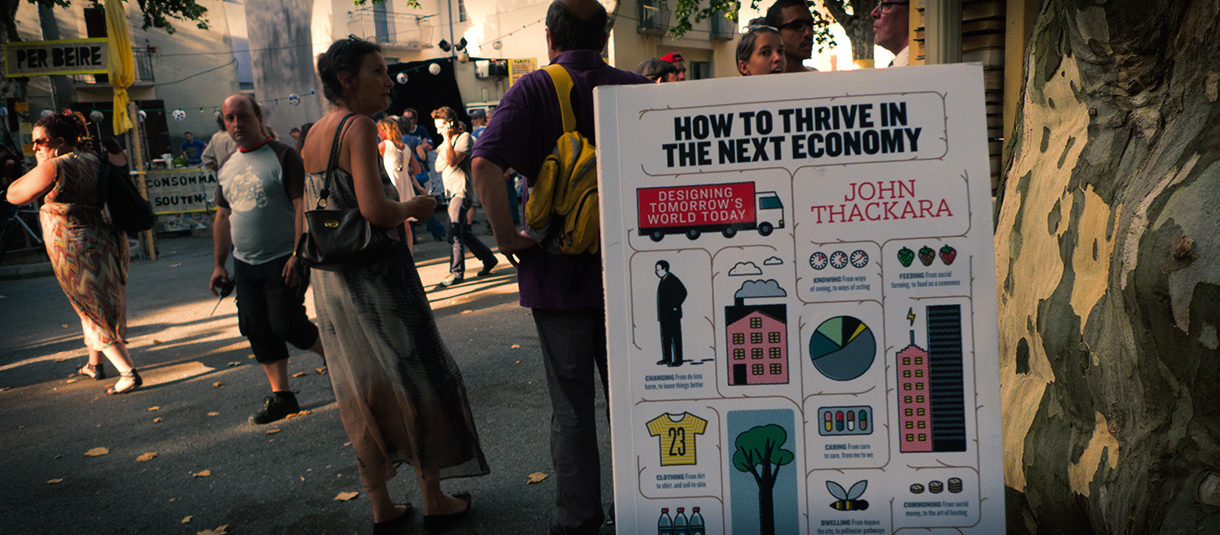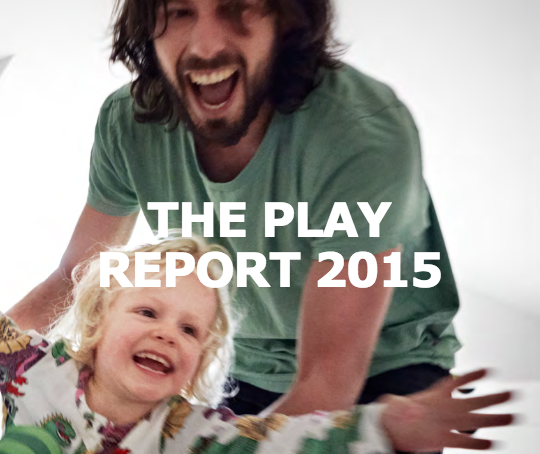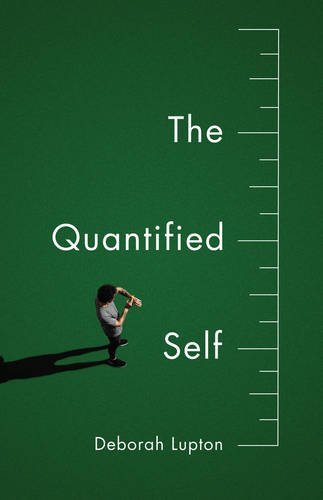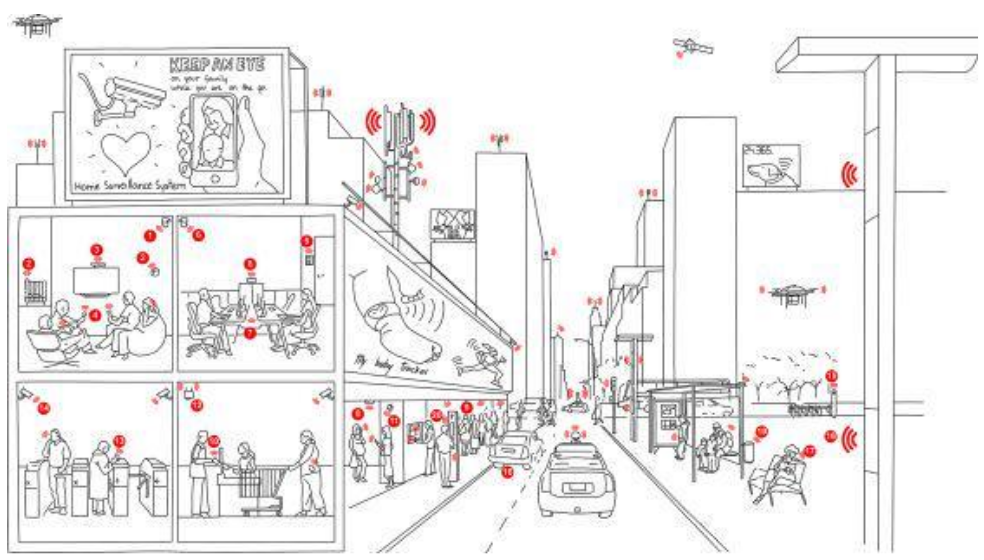[Report] Easier Said Than Done
Easier Said Than Done: Why we struggle with healthy behaviours and what to do about it By Nathalie Spencer RSA, December 2015 Many of us know what we should be doing to live healthily, yet many of us struggle to…
Easier Said Than Done: Why we struggle with healthy behaviours and what to do about it By Nathalie Spencer RSA, December 2015 Many of us know what we should be doing to live healthily, yet many of us struggle to…

The People’s Platform: Taking Back Power and Culture in the Digital Age By Astra Taylor Picador, 288 pages April 2015 The Internet has been hailed as an unprecedented democratizing force, a place where all can participate equally. But how true…
Joel Achenbach reports in the Washington Post on how digital dissenters say human needs are getting lost in the digital revolution and start to fight the tech establishment. Taylor is a 21st-century digital dissenter. She’s one of the many technophiles…
Data & Society is a NYC-based research institute focused on the social and cultural issues arising from data-centric technological development. The institute that was founded by danah boyd, principal researcher and Microsoft Research and frequently featured on this blog, looks…

‘Nudging’ behaviours in healthcare: insights from behavioural economics Benjamin G. Voyer, London School of Economics Article (Accepted version) (2015) British Journal of Healthcare Management, 21 (3). pp. 130-135 Since the creation of the Behavioural Insight Team (BIT) in 2010, the…

By taking into account psychological drivers, the health-care industry can create products and services that will help individuals improve the way they manage their health and well-being, writes Becky Slack in an article in the New Statesman (published in association…

For several years, Shareable has followed, and reported on, Sharing City Seoul, a pioneering project, created by the Seoul Metropolitan Government. With its government-sponsored sharing economy initiatives and community projects, Seoul has become a global leader in the sharing cities…

Jacqueline Detwiler explores for Esquire what it means to be an American teenager in 2015. Zac probably started developing memories around 1999, the year Napster upended the music industry by turning songs into sharable files that nobody owned. Or maybe…

Today we received a hard copy of Peeps, a new and impressive magazine that presents itself as “anthropology for non-anthropologists”, aimed at putting “culture and context before events, bringing investigative stories from corners around the world, and offering readers engaging…

Rinascimenti Sociali [“Social Renaissances”], the first accelerator of social knowledge and entrepreneurship in Italy, launches Foundamenta, a call exclusively dedicated to new business ideas and start-ups generating social impact. Our call is aimed at selecting a maximum of twelve proposals…

On the occasion of the U.S. launch of his new book, How to Thrive in the Next Economy: Designing Tomorrow’s World Today, John Thackara sat down with Core77’s Allan Chochinov to talk about the book, changing attitudes about the future,…

The Quantified Self By Gina Neff and Dawn Nafus MIT Press, 264 pp. April 2016 Oops, that is confusing: two books by sociologists on the quantified self movement, both entitled “The Quantified Self” and both appearing in April 2016. The…
Following the lead of the United States and the United Kingdom, Ireland switched over from analogue to digital television transmission on 24 October 2012. Using the occasion as a jumping-off point, Analogue People in a Digital Age chronicles the switchover…
Paul Mason, economics editor at Channel 4 News and occasional columnist at The Guardian, writes about an alternative smart city vision: the “non-neoliberal smart city” that is currently being developed in Madrid: Instead of seeing the city as a “systemâ€,…

IKEA has undertaken a major research-driven project in 2014 across 12 countries (report here) to explore the subjects of children’s development and play, and young people and parents’ perception of family life at home. This is a follow-up to the…

Tim Adams has published a long interview with Sherry Turkle, MIT Professor of the Social Studies of Science and Technology, in the Observer (the Sunday edition of the Guardian). For nearly thirty years, writes Adams, she has been exploring the…

The White House’s Social and Behavioral Science Team (SBST), a cross-agency effort to bring behavioral science research into the policy making process, has just published its first annual report, which covers just 15 proof-of-concept projects in this first year. Politico’s…

Why do some people spend all day in a gallery while others dash around in an hour? Laurent Carpentier wonders what is the difference between the 3.6% of respondents who reported that they had spent more than six hours exploring…

The Quantified Self – A sociology of self-tracking by Deborah Lupton Polity Press April 2016 Description With the advent of digital devices and software, self-tracking practices have gained new adherents and have spread into a wide array of social domains.…

Research on Digital Identity Ecosystems by Francesca Bria, Gemma Galdon Clavell, Javier Ruiz, José Mara Zavala, Laura Fitchner, Harry Halpin D-CENT (Decentralised Citizens ENgagement Technologies) 30 June 2015 D-CENT (a European research project on “Decentralised Citizens ENgagement Technologies”) has published…